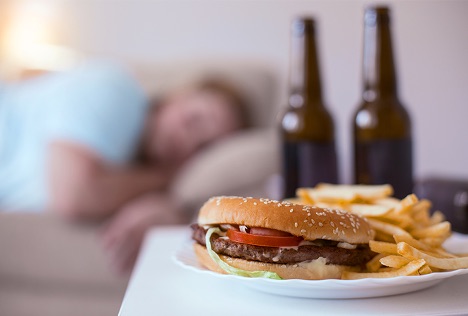By Supatra Tovar, PsyD, RD | Licensed Clinical Psychologist, Registered Dietitian

I recently wrote an article for emedihealth.com on the unhealthy mental habits picked up during lockdown. Below is an excerpt of the article and a link to the full article.
In this article:
- Have the incidences of depression increased during the time of social distancing?
- What unhealthy habits are being picked up by people during the lockdown?
During this pandemic, I have seen an increase in clients reporting symptoms of depression and anxiety. Generally, depression is ruminating about the past, and anxiety is worrying about the future. People often operate on “autopilot” when they are consumed in thoughts about past or future events. This causes distraction, poor eating habits, somatic issues, continued trauma, and a complete disconnect from themselves and others. They tend to become completely unaware of the present moment.
Have the incidences of depression increased during the time of social distancing?
 I have witnessed a great deal of increased depression, isolation, and loneliness. Humans are inherently social beings, and the ones who are riding out this pandemic in solitary isolation are the ones who are tending to suffer the most with depression. (1)
I have witnessed a great deal of increased depression, isolation, and loneliness. Humans are inherently social beings, and the ones who are riding out this pandemic in solitary isolation are the ones who are tending to suffer the most with depression. (1)
Humans crave physical touch and emotional connection, and it is very hard for those facing this alone to find comfort.
What unhealthy habits are being picked up by people during the lockdown?
While I believe that everyone is trying to cope as best as they can, I have observed a rise in the following harmful tendencies:
- Substance use
- Increased caloric intake (2)
- Unhealthy and even risky behavior
Some people feel compelled to use substances or food to provide relief from anxiety and depression.
Others, finding it hard to deal with isolation, gather with friends in their homes, or break social distancing, unnecessarily exposing older loved ones and vulnerable children.
Attempts to cope with a personal mental health problem can become a public health problem if not properly mitigated.
What are some mental health issues you see in your practice during the lockdown?
First and foremost, I have seen an increase in anxiety, which is perfectly understandable, given these unprecedented times.
People are troubled by a range of worries and fears, not only about their family’s physical health during a pandemic, but also around issues like finances, homeschooling kids, and staying employed.
I have seen anxiety play out in many different forms, such as:
- Somatic physical complaints
- Lack of sleep
- Appetite changes
- Excessive rumination
- Fears
- Panic attacks
More dissociative forms of anxiety escape include:
- Binge-watching TV
- Excessive daydreaming
- Increased procrastination
Additionally, there has been an increase in discord among those living together, especially if their relationships were rocky before the pandemic.
Everyone has had to adjust their work (if they still have a job) and mingle it with their home life.
If they have children, the added stress of homeschooling, carving out workspace, and managing childcare has seen families come close to breaking points. There may also be a disturbing rise in domestic violence.
READ MORE: Go to Full Article on emdihealth.com

Recent Comments